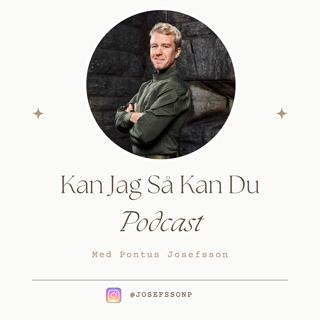
#191 (Part 1) – Carl Shulman on the economy and national security after AGI
This is the first part of our marathon interview with Carl Shulman. The second episode is on government and society after AGI. You can listen to them in either order!The human brain does what it does with a shockingly low energy supply: just 20 watts — a fraction of a cent worth of electricity per hour. What would happen if AI technology merely matched what evolution has already managed, and could accomplish the work of top human professionals given a 20-watt power supply?Many people sort of consider that hypothetical, but maybe nobody has followed through and considered all the implications as much as Carl Shulman. Behind the scenes, his work has greatly influenced how leaders in artificial general intelligence (AGI) picture the world they're creating.Links to learn more, highlights, and full transcript.Carl simply follows the logic to its natural conclusion. This is a world where 1 cent of electricity can be turned into medical advice, company management, or scientific research that would today cost $100s, resulting in a scramble to manufacture chips and apply them to the most lucrative forms of intellectual labour.It's a world where, given their incredible hourly salaries, the supply of outstanding AI researchers quickly goes from 10,000 to 10 million or more, enormously accelerating progress in the field.It's a world where companies operated entirely by AIs working together are much faster and more cost-effective than those that lean on humans for decision making, and the latter are progressively driven out of business. It's a world where the technical challenges around control of robots are rapidly overcome, leading to robots into strong, fast, precise, and tireless workers able to accomplish any physical work the economy requires, and a rush to build billions of them and cash in.As the economy grows, each person could effectively afford the practical equivalent of a team of hundreds of machine 'people' to help them with every aspect of their lives.And with growth rates this high, it doesn't take long to run up against Earth's physical limits — in this case, the toughest to engineer your way out of is the Earth's ability to release waste heat. If this machine economy and its insatiable demand for power generates more heat than the Earth radiates into space, then it will rapidly heat up and become uninhabitable for humans and other animals.This creates pressure to move economic activity off-planet. So you could develop effective populations of billions of scientific researchers operating on computer chips orbiting in space, sending the results of their work, such as drug designs, back to Earth for use.These are just some of the wild implications that could follow naturally from truly embracing the hypothetical: what if we develop AGI that could accomplish everything that the most productive humans can, using the same energy supply?In today's episode, Carl explains the above, and then host Rob Wiblin pushes back on whether that’s realistic or just a cool story, asking:If we're heading towards the above, how come economic growth is slow now and not really increasing?Why have computers and computer chips had so little effect on economic productivity so far?Are self-replicating biological systems a good comparison for self-replicating machine systems?Isn't this just too crazy and weird to be plausible?What bottlenecks would be encountered in supplying energy and natural resources to this growing economy?Might there not be severely declining returns to bigger brains and more training?Wouldn't humanity get scared and pull the brakes if such a transformation kicked off?If this is right, how come economists don't agree?Finally, Carl addresses the moral status of machine minds themselves. Would they be conscious or otherwise have a claim to moral or rights? And how might humans and machines coexist with neither side dominating or exploiting the other?Chapters:Cold open (00:00:00)Rob’s intro (00:01:00)Transitioning to a world where AI systems do almost all the work (00:05:21)Economics after an AI explosion (00:14:25)Objection: Shouldn’t we be seeing economic growth rates increasing today? (00:59:12)Objection: Speed of doubling time (01:07:33)Objection: Declining returns to increases in intelligence? (01:11:59)Objection: Physical transformation of the environment (01:17:39)Objection: Should we expect an increased demand for safety and security? (01:29:14)Objection: “This sounds completely whack” (01:36:10)Income and wealth distribution (01:48:02)Economists and the intelligence explosion (02:13:31)Baumol effect arguments (02:19:12)Denying that robots can exist (02:27:18)Classic economic growth models (02:36:12)Robot nannies (02:48:27)Slow integration of decision-making and authority power (02:57:39)Economists’ mistaken heuristics (03:01:07)Moral status of AIs (03:11:45)Rob’s outro (04:11:47)Producer and editor: Keiran HarrisAudio engineering lead: Ben CordellTechnical editing: Simon Monsour, Milo McGuire, and Dominic ArmstrongTranscriptions: Katy Moore
27 Juni 20244h 14min

#190 – Eric Schwitzgebel on whether the US is conscious
"One of the most amazing things about planet Earth is that there are complex bags of mostly water — you and me – and we can look up at the stars, and look into our brains, and try to grapple with the most complex, difficult questions that there are. And even if we can’t make great progress on them and don’t come to completely satisfying solutions, just the fact of trying to grapple with these things is kind of the universe looking at itself and trying to understand itself. So we’re kind of this bright spot of reflectiveness in the cosmos, and I think we should celebrate that fact for its own intrinsic value and interestingness." —Eric SchwitzgebelIn today’s episode, host Luisa Rodriguez speaks to Eric Schwitzgebel — professor of philosophy at UC Riverside — about some of the most bizarre and unintuitive claims from his recent book, The Weirdness of the World.Links to learn more, highlights, and full transcript.They cover:Why our intuitions seem so unreliable for answering fundamental questions about reality.What the materialist view of consciousness is, and how it might imply some very weird things — like that the United States could be a conscious entity.Thought experiments that challenge our intuitions — like supersquids that think and act through detachable tentacles, and intelligent species whose brains are made up of a million bugs.Eric’s claim that consciousness and cosmology are universally bizarre and dubious.How to think about borderline states of consciousness, and whether consciousness is more like a spectrum or more like a light flicking on.The nontrivial possibility that we could be dreaming right now, and the ethical implications if that’s true.Why it’s worth it to grapple with the universe’s most complex questions, even if we can’t find completely satisfying solutions.And much more.Chapters:Cold open |00:00:00|Luisa’s intro |00:01:10|Bizarre and dubious philosophical theories |00:03:13|The materialist view of consciousness |00:13:55|What would it mean for the US to be conscious? |00:19:46|Supersquids and antheads thought experiments |00:22:37|Alternatives to the materialist perspective |00:35:19|Are our intuitions useless for thinking about these things? |00:42:55|Key ingredients for consciousness |00:46:46|Reasons to think the US isn’t conscious |01:01:15|Overlapping consciousnesses [01:09:32]Borderline cases of consciousness |01:13:22|Are we dreaming right now? |01:40:29|Will we ever have answers to these dubious and bizarre questions? |01:56:16|Producer and editor: Keiran HarrisAudio engineering lead: Ben CordellTechnical editing: Simon Monsour, Milo McGuire, and Dominic ArmstrongAdditional content editing: Katy Moore and Luisa RodriguezTranscriptions: Katy Moore
7 Juni 20242h

#189 – Rachel Glennerster on why we still don’t have vaccines that could save millions
"You can’t charge what something is worth during a pandemic. So we estimated that the value of one course of COVID vaccine in January 2021 was over $5,000. They were selling for between $6 and $40. So nothing like their social value. Now, don’t get me wrong. I don’t think that they should have charged $5,000 or $6,000. That’s not ethical. It’s also not economically efficient, because they didn’t cost $5,000 at the marginal cost. So you actually want low price, getting out to lots of people."But it shows you that the market is not going to reward people who do the investment in preparation for a pandemic — because when a pandemic hits, they’re not going to get the reward in line with the social value. They may even have to charge less than they would in a non-pandemic time. So prepping for a pandemic is not an efficient market strategy if I’m a firm, but it’s a very efficient strategy for society, and so we’ve got to bridge that gap." —Rachel GlennersterIn today’s episode, host Luisa Rodriguez speaks to Rachel Glennerster — associate professor of economics at the University of Chicago and a pioneer in the field of development economics — about how her team’s new Market Shaping Accelerator aims to leverage market forces to drive innovations that can solve pressing world problems.Links to learn more, highlights, and full transcript.They cover:How market failures and misaligned incentives stifle critical innovations for social goods like pandemic preparedness, climate change interventions, and vaccine development.How “pull mechanisms” like advance market commitments (AMCs) can help overcome these challenges — including concrete examples like how one AMC led to speeding up the development of three vaccines which saved around 700,000 lives in low-income countries.The challenges in designing effective pull mechanisms, from design to implementation.Why it’s important to tie innovation incentives to real-world impact and uptake, not just the invention of a new technology.The massive benefits of accelerating vaccine development, in some cases, even if it’s only by a few days or weeks.The case for a $6 billion advance market commitment to spur work on a universal COVID-19 vaccine.The shortlist of ideas from the Market Shaping Accelerator’s recent Innovation Challenge that use pull mechanisms to address market failures around improving indoor air quality, repurposing generic drugs for alternative uses, and developing eco-friendly air conditioners for a warming planet.“Best Buys” and “Bad Buys” for improving education systems in low- and middle-income countries, based on evidence from over 400 studies.Lessons from Rachel’s career at the forefront of global development, and how insights from economics can drive transformative change.And much more.Chapters:The Market Shaping Accelerator (00:03:33)Pull mechanisms for innovation (00:13:10)Accelerating the pneumococcal and COVID vaccines (00:19:05)Advance market commitments (00:41:46)Is this uncertainty hard for funders to plan around? (00:49:17)The story of the malaria vaccine that wasn’t (00:57:15)Challenges with designing and implementing AMCs and other pull mechanisms (01:01:40)Universal COVID vaccine (01:18:14)Climate-resilient crops (01:34:09)The Market Shaping Accelerator’s Innovation Challenge (01:45:40)Indoor air quality to reduce respiratory infections (01:49:09)Repurposing generic drugs (01:55:50)Clean air conditioning units (02:02:41)Broad-spectrum antivirals for pandemic prevention (02:09:11)Improving education in low- and middle-income countries (02:15:53)What’s still weird for Rachel about living in the US? (02:45:06)Producer and editor: Keiran HarrisAudio Engineering Lead: Ben CordellTechnical editing: Simon Monsour, Milo McGuire, and Dominic ArmstrongAdditional content editing: Katy Moore and Luisa RodriguezTranscriptions: Katy Moore
29 Maj 20242h 48min

#188 – Matt Clancy on whether science is good
"Suppose we make these grants, we do some of those experiments I talk about. We discover, for example — I’m just making this up — but we give people superforecasting tests when they’re doing peer review, and we find that you can identify people who are super good at picking science. And then we have this much better targeted science, and we’re making progress at a 10% faster rate than we normally would have. Over time, that aggregates up, and maybe after 10 years, we’re a year ahead of where we would have been if we hadn’t done this kind of stuff."Now, suppose in 10 years we’re going to discover a cheap new genetic engineering technology that anyone can use in the world if they order the right parts off of Amazon. That could be great, but could also allow bad actors to genetically engineer pandemics and basically try to do terrible things with this technology. And if we’ve brought that forward, and that happens at year nine instead of year 10 because of some of these interventions we did, now we start to think that if that’s really bad, if these people using this technology causes huge problems for humanity, it begins to sort of wash out the benefits of getting the science a little bit faster." —Matt ClancyIn today’s episode, host Luisa Rodriguez speaks to Matt Clancy — who oversees Open Philanthropy’s Innovation Policy programme — about his recent work modelling the risks and benefits of the increasing speed of scientific progress.Links to learn more, highlights, and full transcript.They cover:Whether scientific progress is actually net positive for humanity.Scenarios where accelerating science could lead to existential risks, such as advanced biotechnology being used by bad actors.Why Matt thinks metascience research and targeted funding could improve the scientific process and better incentivise outcomes that are good for humanity.Whether Matt trusts domain experts or superforecasters more when estimating how the future will turn out.Why Matt is sceptical that AGI could really cause explosive economic growth.And much more.Chapters:Is scientific progress net positive for humanity? (00:03:00)The time of biological perils (00:17:50)Modelling the benefits of science (00:25:48)Income and health gains from scientific progress (00:32:49)Discount rates (00:42:14)How big are the returns to science? (00:51:08)Forecasting global catastrophic biological risks from scientific progress (01:05:20)What’s the value of scientific progress, given the risks? (01:15:09)Factoring in extinction risk (01:21:56)How science could reduce extinction risk (01:30:18)Are we already too late to delay the time of perils? (01:42:38)Domain experts vs superforecasters (01:46:03)What Open Philanthropy’s Innovation Policy programme settled on (01:53:47)Explosive economic growth (02:06:28)Matt’s favourite thought experiment (02:34:57)Producer and editor: Keiran HarrisAudio engineering lead: Ben CordellTechnical editing: Simon Monsour, Milo McGuire, and Dominic ArmstrongAdditional content editing: Katy Moore and Luisa RodriguezTranscriptions: Katy Moore
23 Maj 20242h 40min

#187 – Zach Weinersmith on how researching his book turned him from a space optimist into a "space bastard"
"Earth economists, when they measure how bad the potential for exploitation is, they look at things like, how is labour mobility? How much possibility do labourers have otherwise to go somewhere else? Well, if you are on the one company town on Mars, your labour mobility is zero, which has never existed on Earth. Even in your stereotypical West Virginian company town run by immigrant labour, there’s still, by definition, a train out. On Mars, you might not even be in the launch window. And even if there are five other company towns or five other settlements, they’re not necessarily rated to take more humans. They have their own oxygen budget, right? "And so economists use numbers like these, like labour mobility, as a way to put an equation and estimate the ability of a company to set noncompetitive wages or to set noncompetitive work conditions. And essentially, on Mars you’re setting it to infinity." — Zach WeinersmithIn today’s episode, host Luisa Rodriguez speaks to Zach Weinersmith — the cartoonist behind Saturday Morning Breakfast Cereal — about the latest book he wrote with his wife Kelly: A City on Mars: Can We Settle Space, Should We Settle Space, and Have We Really Thought This Through?Links to learn more, highlights, and full transcript.They cover:Why space travel is suddenly getting a lot cheaper and re-igniting enthusiasm around space settlement.What Zach thinks are the best and worst arguments for settling space.Zach’s journey from optimistic about space settlement to a self-proclaimed “space bastard” (pessimist).How little we know about how microgravity and radiation affects even adults, much less the children potentially born in a space settlement.A rundown of where we could settle in the solar system, and the major drawbacks of even the most promising candidates.Why digging bunkers or underwater cities on Earth would beat fleeing to Mars in a catastrophe.How new space settlements could look a lot like old company towns — and whether or not that’s a bad thing.The current state of space law and how it might set us up for international conflict.How space cannibalism legal loopholes might work on the International Space Station.And much more.Chapters:Space optimism and space bastards (00:03:04)Bad arguments for why we should settle space (00:14:01)Superficially plausible arguments for why we should settle space (00:28:54)Is settling space even biologically feasible? (00:32:43)Sex, pregnancy, and child development in space (00:41:41)Where’s the best space place to settle? (00:55:02)Creating self-sustaining habitats (01:15:32)What about AI advances? (01:26:23)A roadmap for settling space (01:33:45)Space law (01:37:22)Space signalling and propaganda (01:51:28) Space war (02:00:40)Mining asteroids (02:06:29)Company towns and communes in space (02:10:55)Sending digital minds into space (02:26:37)The most promising space governance models (02:29:07)The tragedy of the commons (02:35:02)The tampon bandolier and other bodily functions in space (02:40:14)Is space cannibalism legal? (02:47:09)The pregnadrome and other bizarre proposals (02:50:02)Space sexism (02:58:38)What excites Zach about the future (03:02:57)Producer and editor: Keiran HarrisAudio engineering lead: Ben CordellTechnical editing: Simon Monsour, Milo McGuire, and Dominic ArmstrongAdditional content editing: Katy Moore and Luisa RodriguezTranscriptions: Katy Moore
14 Maj 20243h 6min

#186 – Dean Spears on why babies are born small in Uttar Pradesh, and how to save their lives
"I work in a place called Uttar Pradesh, which is a state in India with 240 million people. One in every 33 people in the whole world lives in Uttar Pradesh. It would be the fifth largest country if it were its own country. And if it were its own country, you’d probably know about its human development challenges, because it would have the highest neonatal mortality rate of any country except for South Sudan and Pakistan. Forty percent of children there are stunted. Only two-thirds of women are literate. So Uttar Pradesh is a place where there are lots of health challenges."And then even within that, we’re working in a district called Bahraich, where about 4 million people live. So even that district of Uttar Pradesh is the size of a country, and if it were its own country, it would have a higher neonatal mortality rate than any other country. In other words, babies born in Bahraich district are more likely to die in their first month of life than babies born in any country around the world." — Dean SpearsIn today’s episode, host Luisa Rodriguez speaks to Dean Spears — associate professor of economics at the University of Texas at Austin and founding director of r.i.c.e. — about his experience implementing a surprisingly low-tech but highly cost-effective kangaroo mother care programme in Uttar Pradesh, India to save the lives of vulnerable newborn infants.Links to learn more, highlights, and full transcript.They cover:The shockingly high neonatal mortality rates in Uttar Pradesh, India, and how social inequality and gender dynamics contribute to poor health outcomes for both mothers and babies.The remarkable benefits for vulnerable newborns that come from skin-to-skin contact and breastfeeding support.The challenges and opportunities that come with working with a government hospital to implement new, evidence-based programmes.How the currently small programme might be scaled up to save more newborns’ lives in other regions of Uttar Pradesh and beyond.How targeted health interventions stack up against direct cash transfers.Plus, a sneak peak into Dean’s new book, which explores the looming global population peak that’s expected around 2080, and the consequences of global depopulation.And much more.Chapters:Why is low birthweight a major problem in Uttar Pradesh? (00:02:45)Neonatal mortality and maternal health in Uttar Pradesh (00:06:10)Kangaroo mother care (00:12:08)What would happen without this intervention? (00:16:07)Evidence of KMC’s effectiveness (00:18:15)Longer-term outcomes (00:32:14)GiveWell’s support and implementation challenges (00:41:13)How can KMC be so cost effective? (00:52:38)Programme evaluation (00:57:21)Is KMC is better than direct cash transfers? (00:59:12)Expanding the programme and what skills are needed (01:01:29)Fertility and population decline (01:07:28)What advice Dean would give his younger self (01:16:09)Producer and editor: Keiran HarrisAudio engineering lead: Ben CordellTechnical editing: Simon Monsour, Milo McGuire, and Dominic ArmstrongAdditional content editing: Katy Moore and Luisa RodriguezTranscriptions: Katy Moore
1 Maj 20241h 18min

#185 – Lewis Bollard on the 7 most promising ways to end factory farming, and whether AI is going to be good or bad for animals
"The constraint right now on factory farming is how far can you push the biology of these animals? But AI could remove that constraint. It could say, 'Actually, we can push them further in these ways and these ways, and they still stay alive. And we’ve modelled out every possibility and we’ve found that it works.' I think another possibility, which I don’t understand as well, is that AI could lock in current moral values. And I think in particular there’s a risk that if AI is learning from what we do as humans today, the lesson it’s going to learn is that it’s OK to tolerate mass cruelty, so long as it occurs behind closed doors. I think there’s a risk that if it learns that, then it perpetuates that value, and perhaps slows human moral progress on this issue." —Lewis BollardIn today’s episode, host Luisa Rodriguez speaks to Lewis Bollard — director of the Farm Animal Welfare programme at Open Philanthropy — about the promising progress and future interventions to end the worst factory farming practices still around today.Links to learn more, highlights, and full transcript.They cover:The staggering scale of animal suffering in factory farms, and how it will only get worse without intervention.Work to improve farmed animal welfare that Open Philanthropy is excited about funding.The amazing recent progress made in farm animal welfare — including regulatory attention in the EU and a big win at the US Supreme Court — and the work that still needs to be done.The occasional tension between ending factory farming and curbing climate changeHow AI could transform factory farming for better or worse — and Lewis’s fears that the technology will just help us maximise cruelty in the name of profit.How Lewis has updated his opinions or grantmaking as a result of new research on the “moral weights” of different species.Lewis’s personal journey working on farm animal welfare, and how he copes with the emotional toll of confronting the scale of animal suffering.How listeners can get involved in the growing movement to end factory farming — from career and volunteer opportunities to impactful donations.And much more.Chapters:Common objections to ending factory farming (00:13:21)Potential solutions (00:30:55)Cage-free reforms (00:34:25)Broiler chicken welfare (00:46:48)Do companies follow through on these commitments? (01:00:21)Fish welfare (01:05:02)Alternatives to animal proteins (01:16:36)Farm animal welfare in Asia (01:26:00)Farm animal welfare in Europe (01:30:45)Animal welfare science (01:42:09)Approaches Lewis is less excited about (01:52:10)Will we end factory farming in our lifetimes? (01:56:36)Effect of AI (01:57:59)Recent big wins for farm animals (02:07:38)How animal advocacy has changed since Lewis first got involved (02:15:57)Response to the Moral Weight Project (02:19:52)How to help (02:28:14)Producer and editor: Keiran HarrisAudio engineering lead: Ben CordellTechnical editing: Simon Monsour, Milo McGuire, and Dominic ArmstrongAdditional content editing: Katy Moore and Luisa RodriguezTranscriptions: Katy Moore
18 Apr 20242h 33min

#184 – Zvi Mowshowitz on sleeping on sleeper agents, and the biggest AI updates since ChatGPT
Many of you will have heard of Zvi Mowshowitz as a superhuman information-absorbing-and-processing machine — which he definitely is. As the author of the Substack Don’t Worry About the Vase, Zvi has spent as much time as literally anyone in the world over the last two years tracking in detail how the explosion of AI has been playing out — and he has strong opinions about almost every aspect of it. Links to learn more, summary, and full transcript.In today’s episode, host Rob Wiblin asks Zvi for his takes on:US-China negotiationsWhether AI progress has stalledThe biggest wins and losses for alignment in 2023EU and White House AI regulationsWhich major AI lab has the best safety strategyThe pros and cons of the Pause AI movementRecent breakthroughs in capabilitiesIn what situations it’s morally acceptable to work at AI labsWhether you agree or disagree with his views, Zvi is super informed and brimming with concrete details.Zvi and Rob also talk about:The risk of AI labs fooling themselves into believing their alignment plans are working when they may not be.The “sleeper agent” issue uncovered in a recent Anthropic paper, and how it shows us how hard alignment actually is.Why Zvi disagrees with 80,000 Hours’ advice about gaining career capital to have a positive impact.Zvi’s project to identify the most strikingly horrible and neglected policy failures in the US, and how Zvi founded a new think tank (Balsa Research) to identify innovative solutions to overthrow the horrible status quo in areas like domestic shipping, environmental reviews, and housing supply.Why Zvi thinks that improving people’s prosperity and housing can make them care more about existential risks like AI.An idea from the online rationality community that Zvi thinks is really underrated and more people should have heard of: simulacra levels.And plenty more.Chapters:Zvi’s AI-related worldview (00:03:41)Sleeper agents (00:05:55)Safety plans of the three major labs (00:21:47)Misalignment vs misuse vs structural issues (00:50:00)Should concerned people work at AI labs? (00:55:45)Pause AI campaign (01:30:16)Has progress on useful AI products stalled? (01:38:03)White House executive order and US politics (01:42:09)Reasons for AI policy optimism (01:56:38)Zvi’s day-to-day (02:09:47)Big wins and losses on safety and alignment in 2023 (02:12:29)Other unappreciated technical breakthroughs (02:17:54)Concrete things we can do to mitigate risks (02:31:19)Balsa Research and the Jones Act (02:34:40)The National Environmental Policy Act (02:50:36)Housing policy (02:59:59)Underrated rationalist worldviews (03:16:22)Producer and editor: Keiran HarrisAudio Engineering Lead: Ben CordellTechnical editing: Simon Monsour, Milo McGuire, and Dominic ArmstrongTranscriptions and additional content editing: Katy Moore
11 Apr 20243h 31min






















